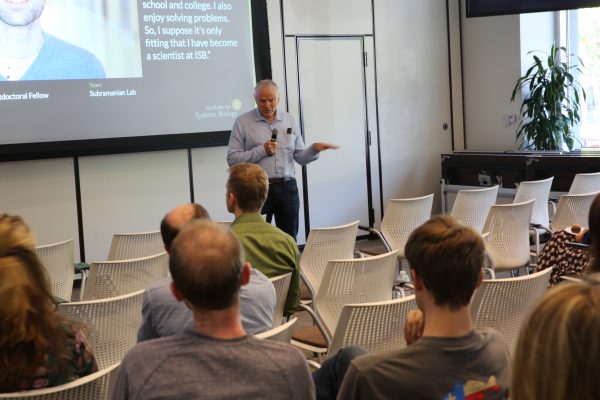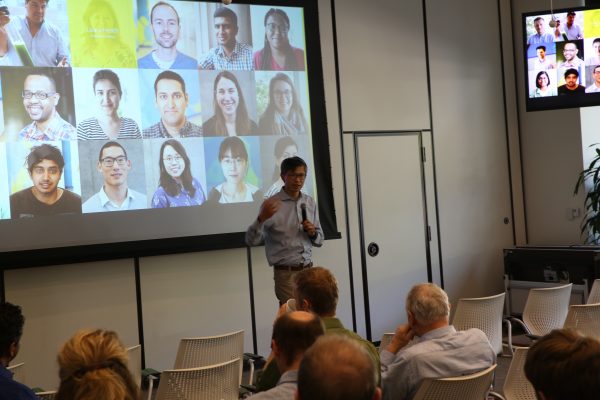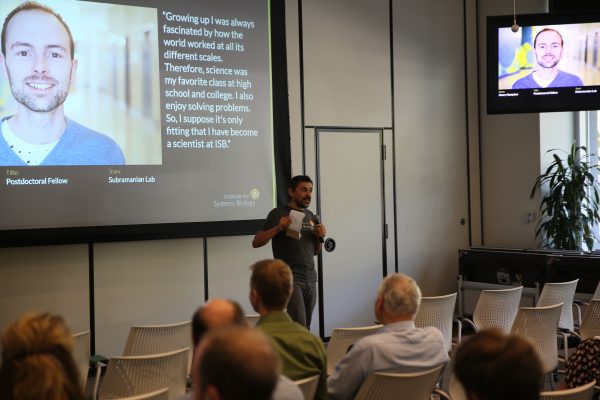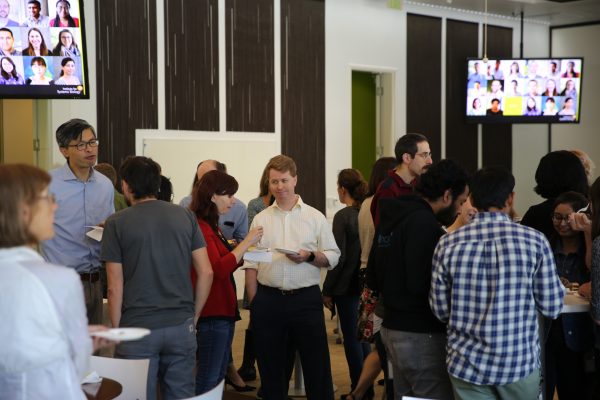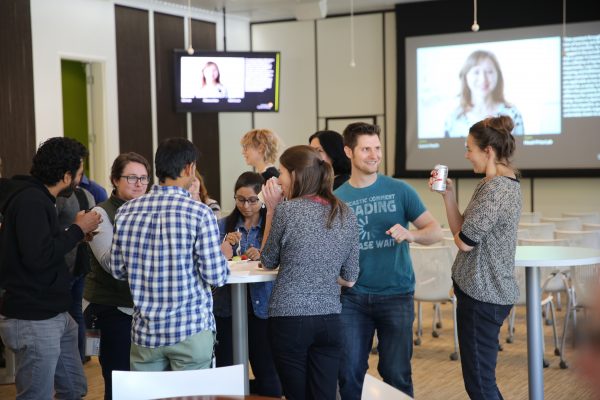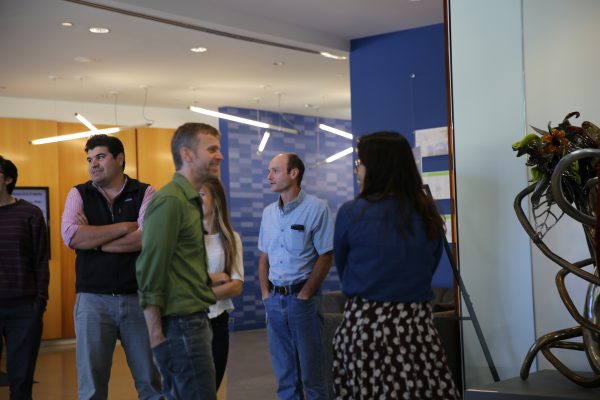Postdoc Appreciation 2017
 isbscience.org/news/2017/09/27/postdoc-2017/
isbscience.org/news/2017/09/27/postdoc-2017/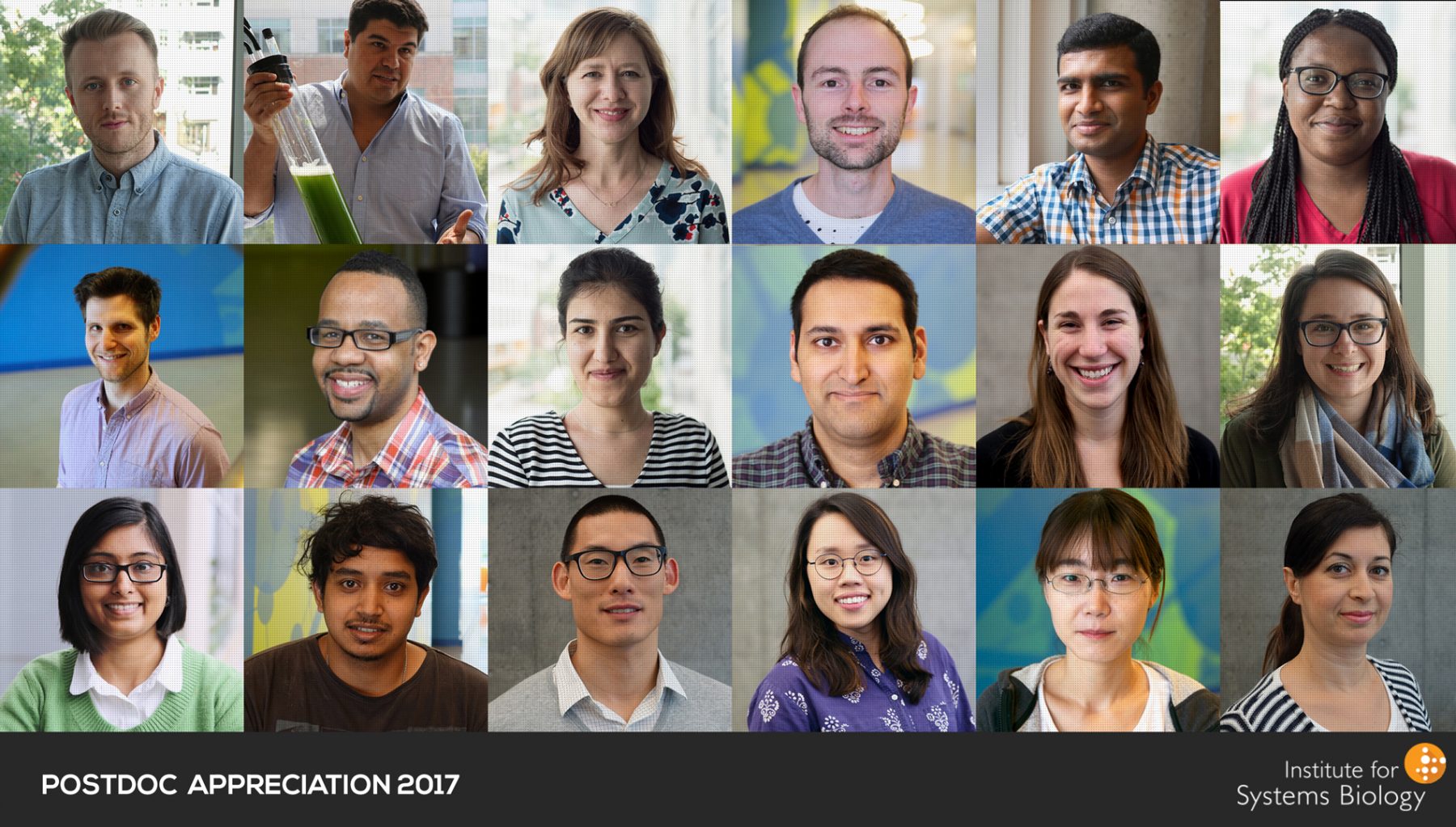
In honor of National Postdoc Appreciation Week in late September, ISB’s staff recently gathered to honor and celebrate all of our devoted and hardworking postdocs. The event included speeches from a number of faculty members. “Postdocs are the heart of ISB,” Dr. Nathan Price, professor and associate director, told the gathering. “I say that as a former postdoc,” he joked. Dr. Nitin Baliga, ISB’s senior vice president and director, affectionately told the postdocs they are “the boots on the ground” of the many different research areas around our organization.
Postdocs from all nine faculty lab groups were honored. They include: Ajay Akhade, Mario Arrieta-Ortiz, Priyanka Baloni, Rhishikesh Bargaje, Nyasha Chambwe, Vikas Ghai, Isil Hamdemir, Henry Hampton, Laura Heath, Neda Jabbari, Guenther Kahlert, Sanjeev Kumar, Sarah Kwon, Minyoung Lee, Mukul Midha, Annie Otwell, Jaipal Panga, James Park, Matt Richards, Leah Rommereim, Martin Shelton, Vivek Srinivas, Jacob Valenzuela, and Matt Wall.



